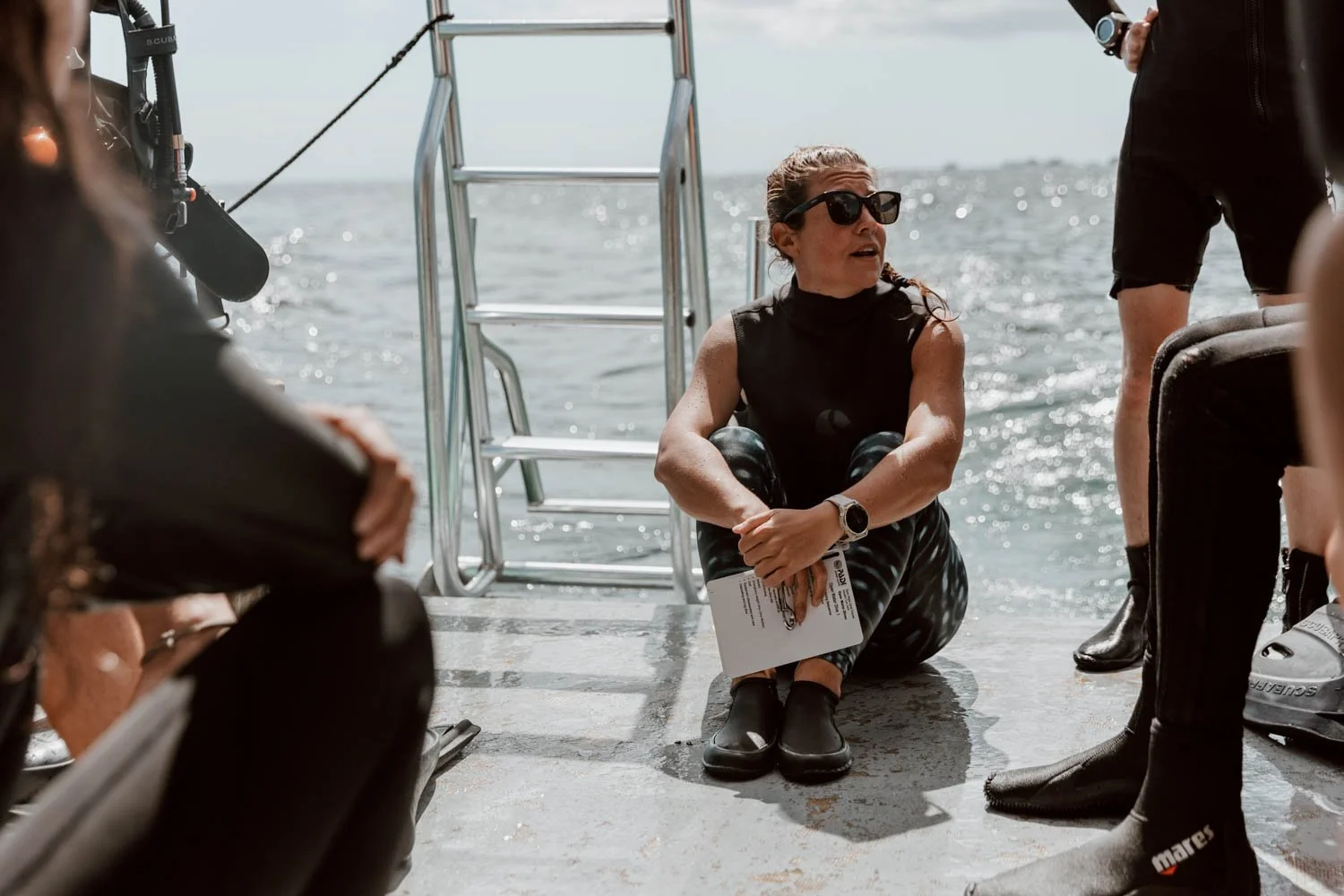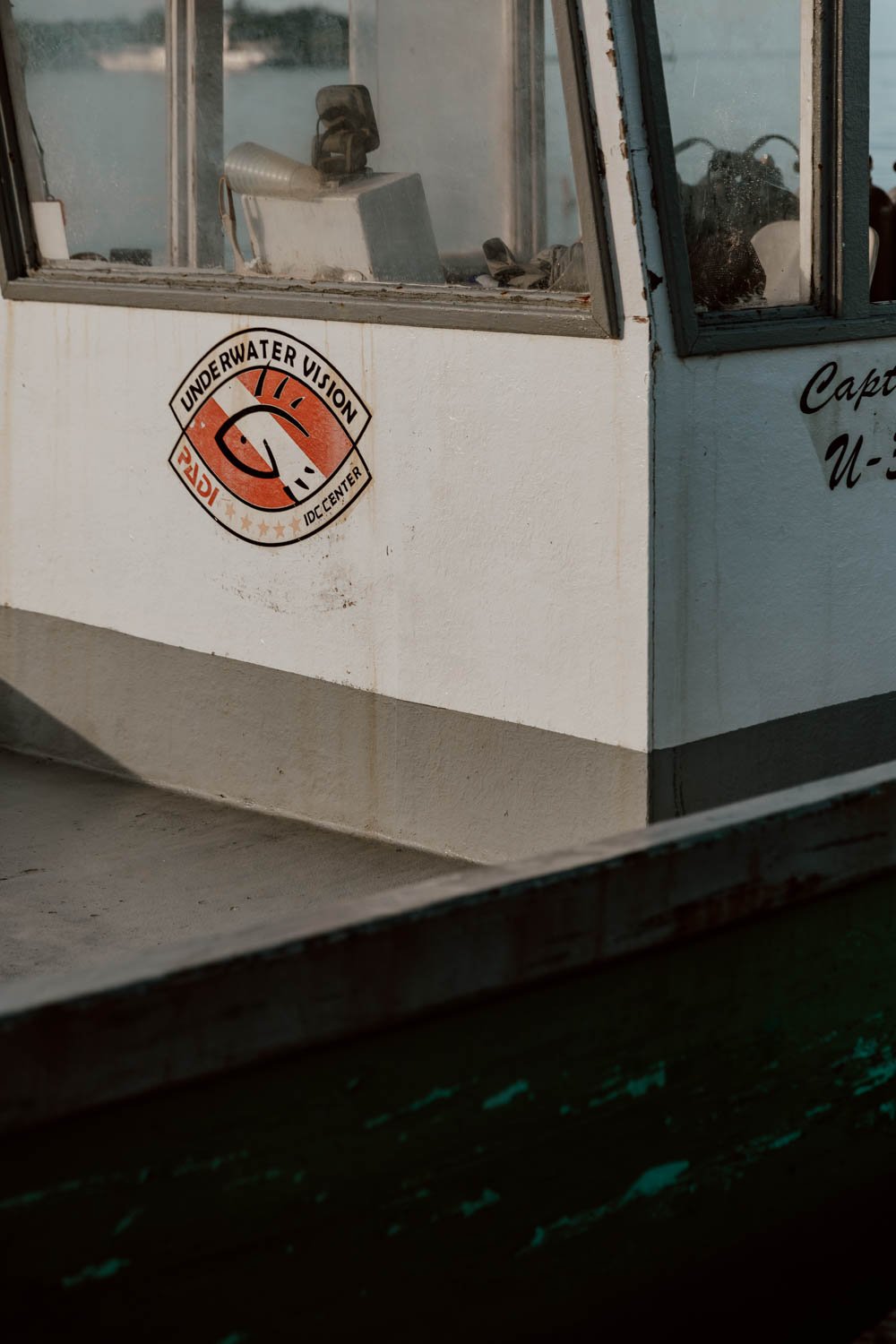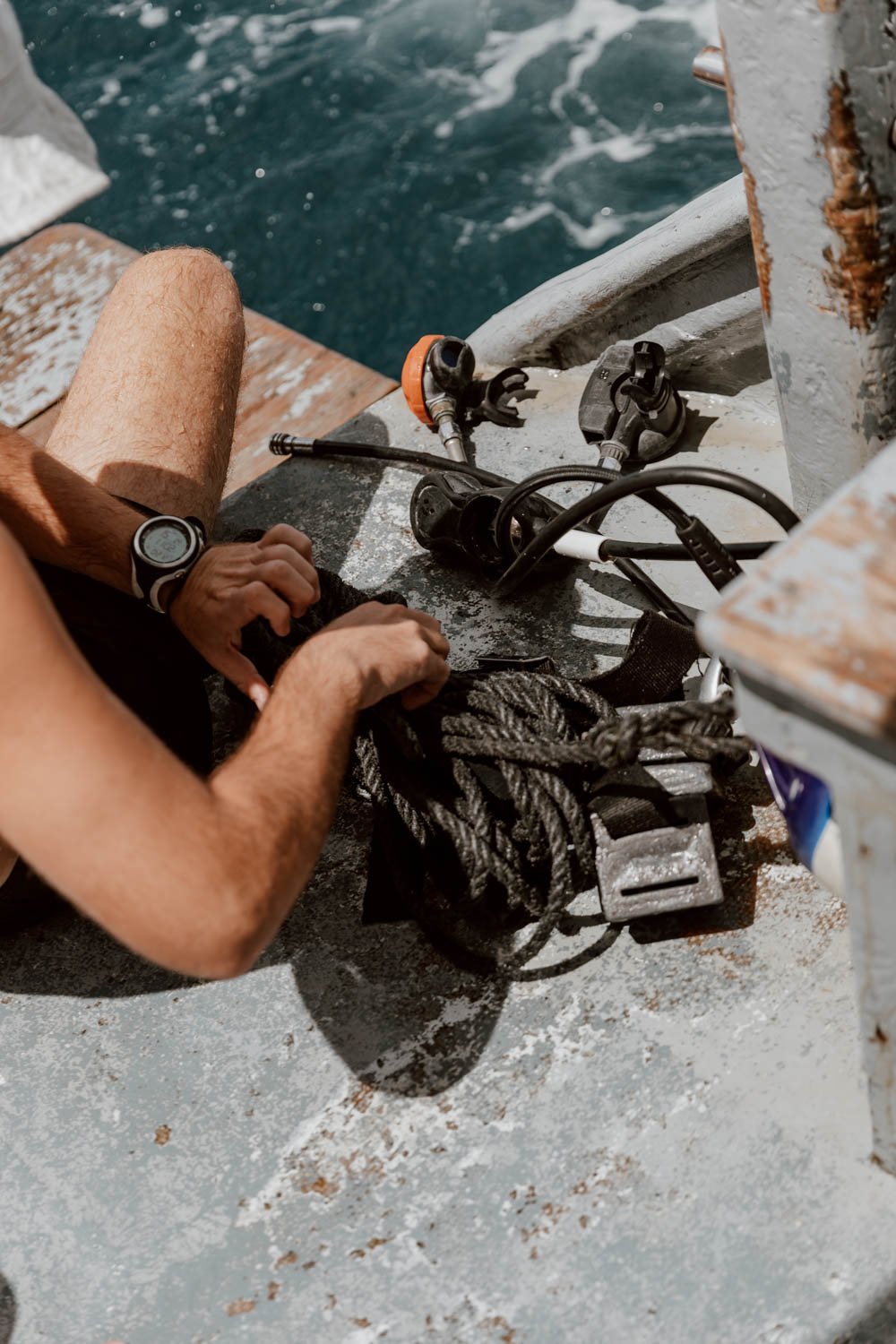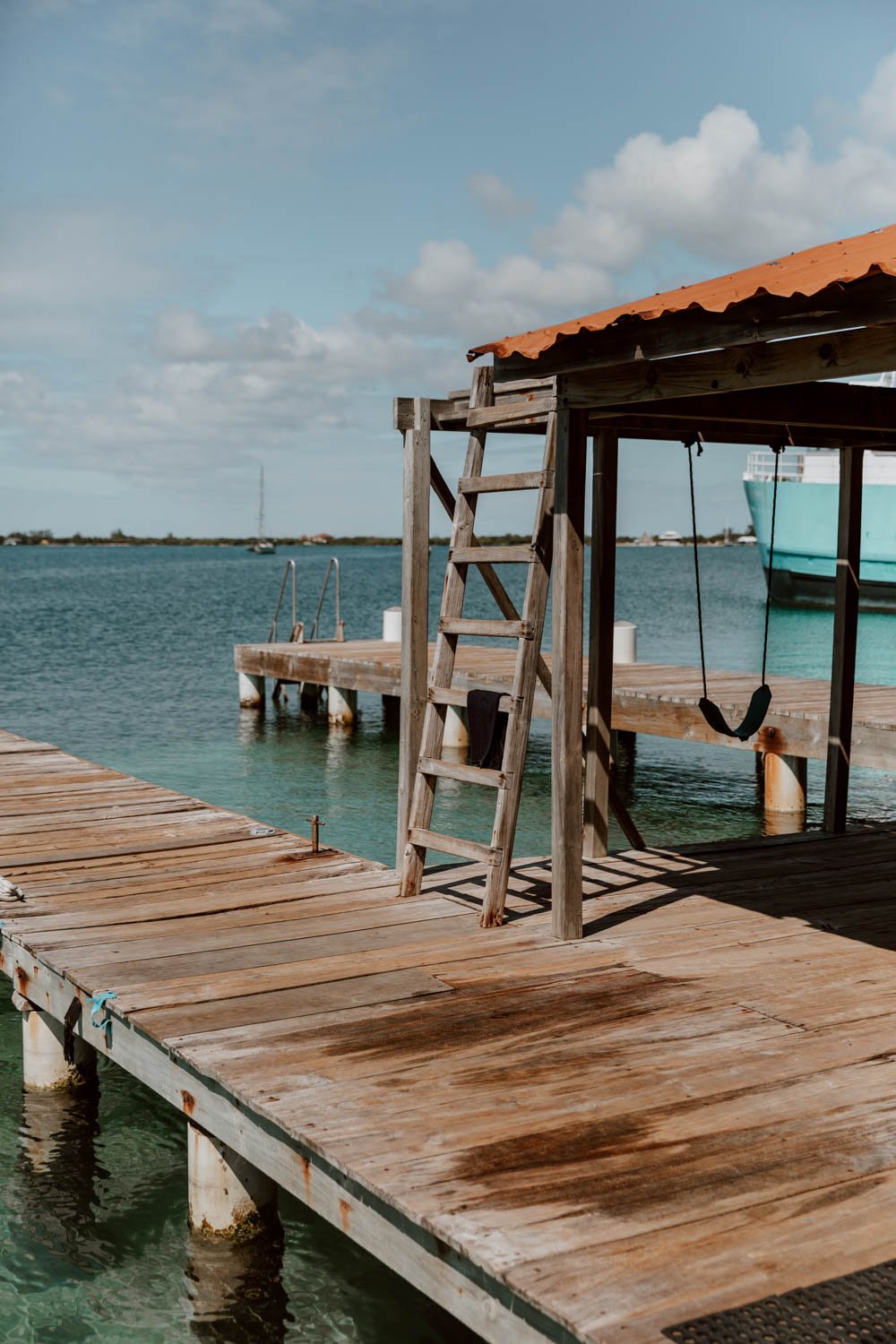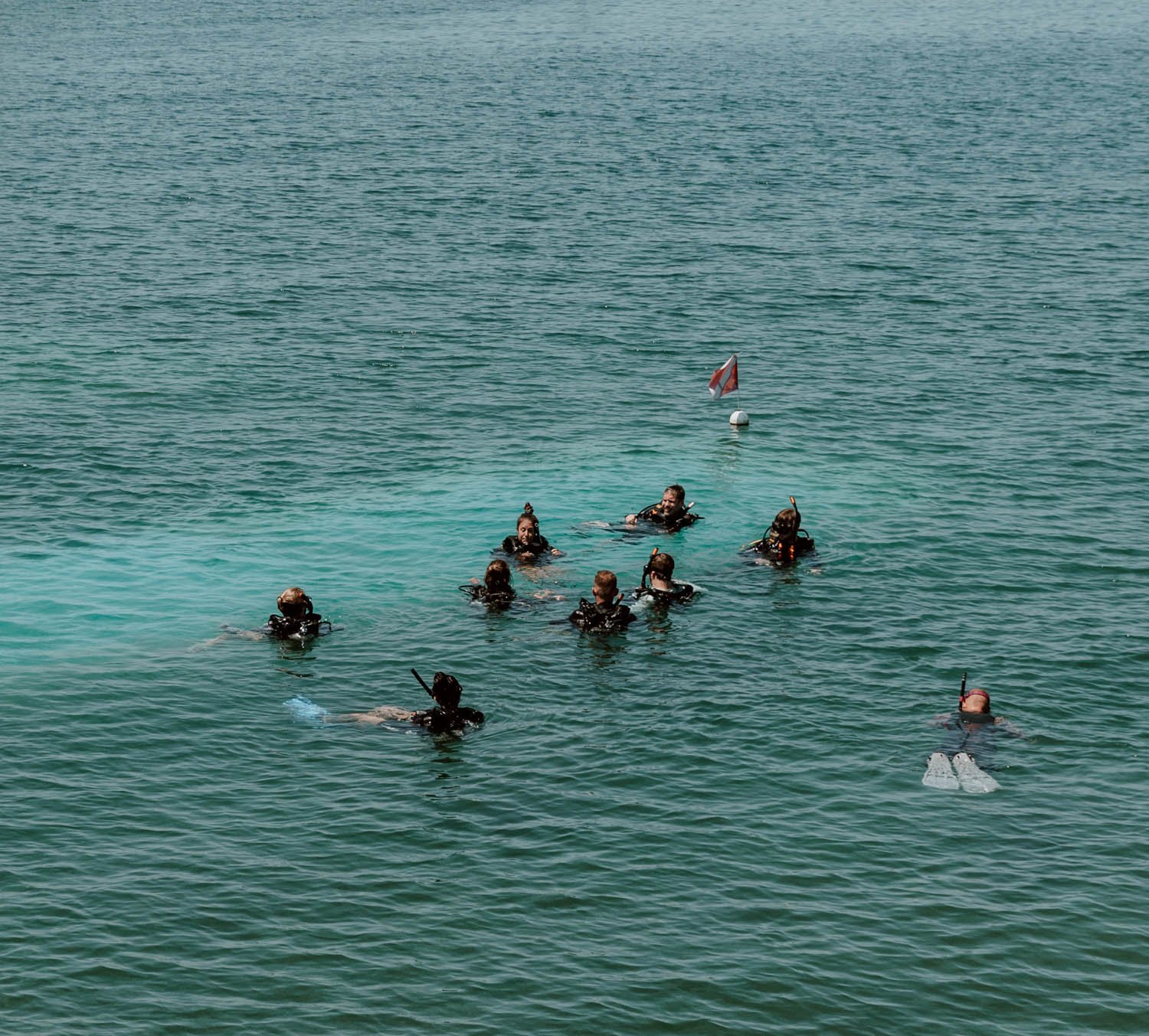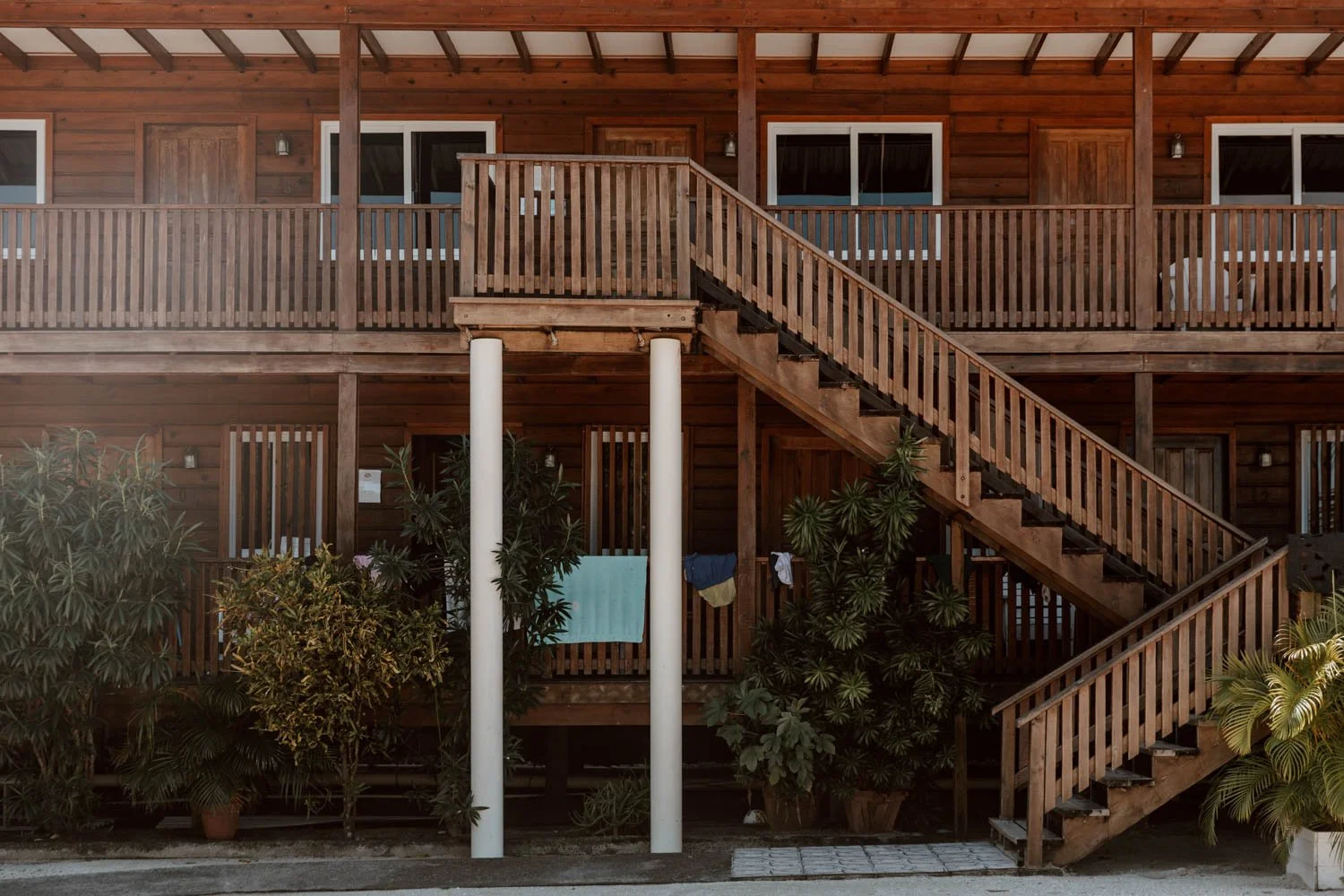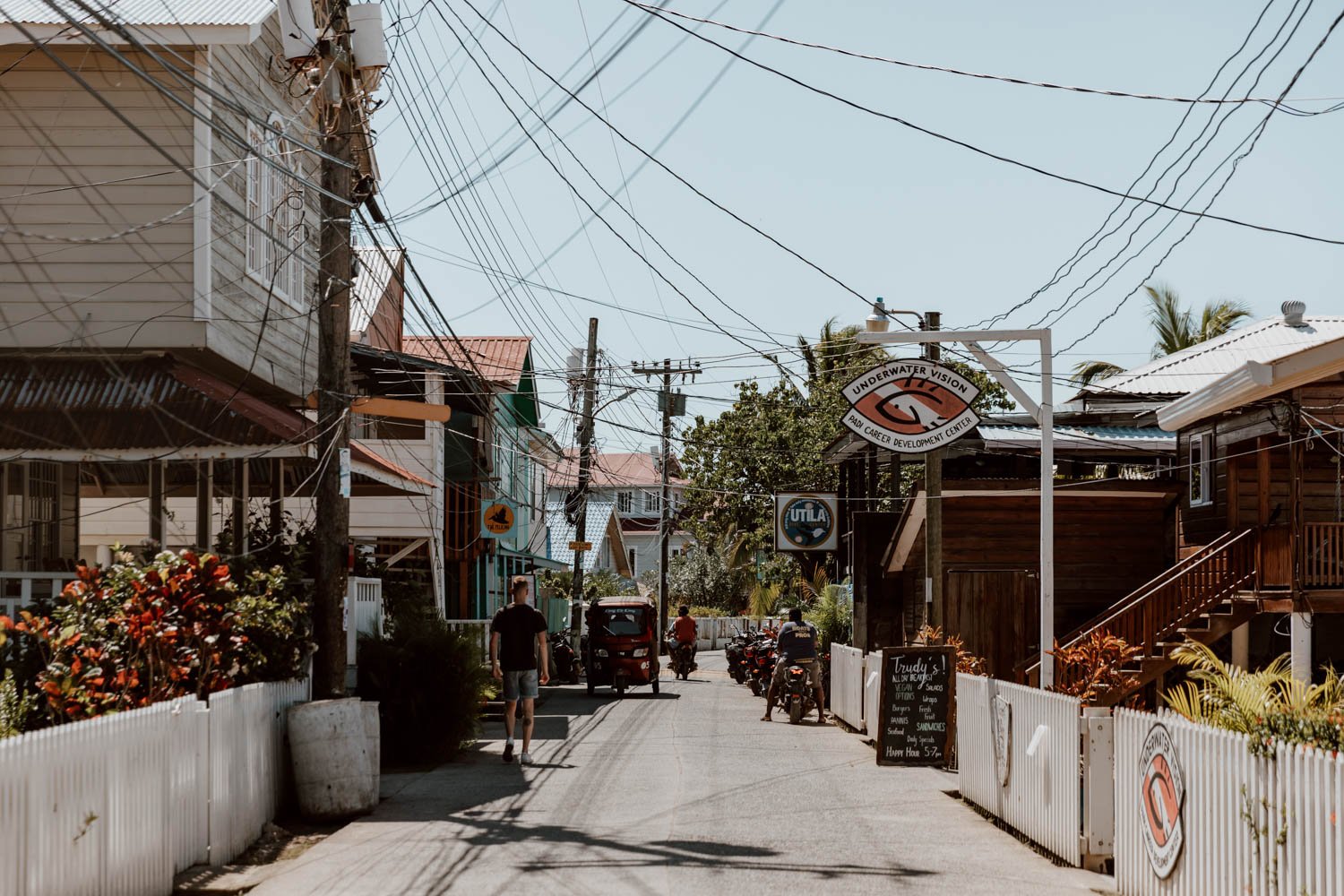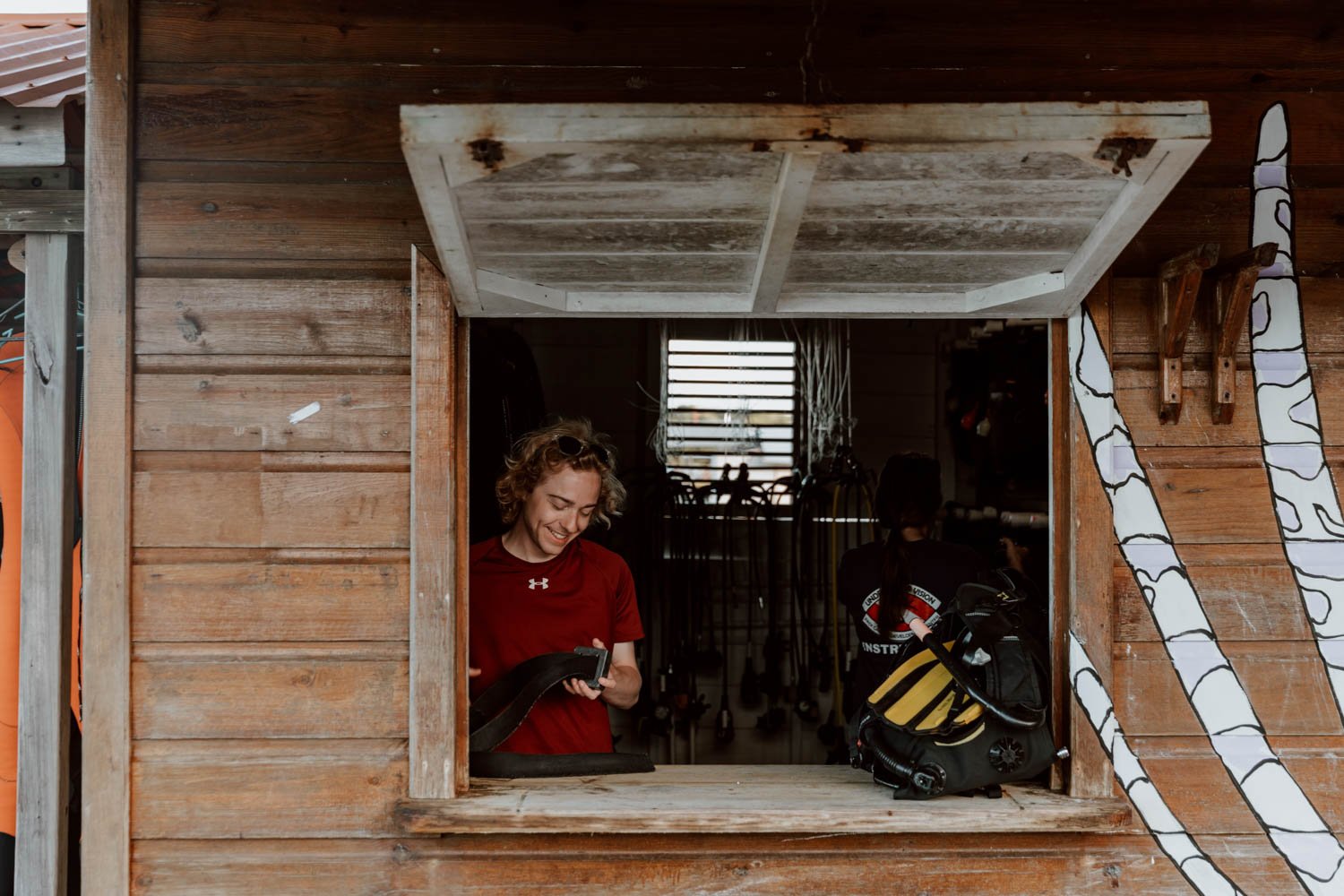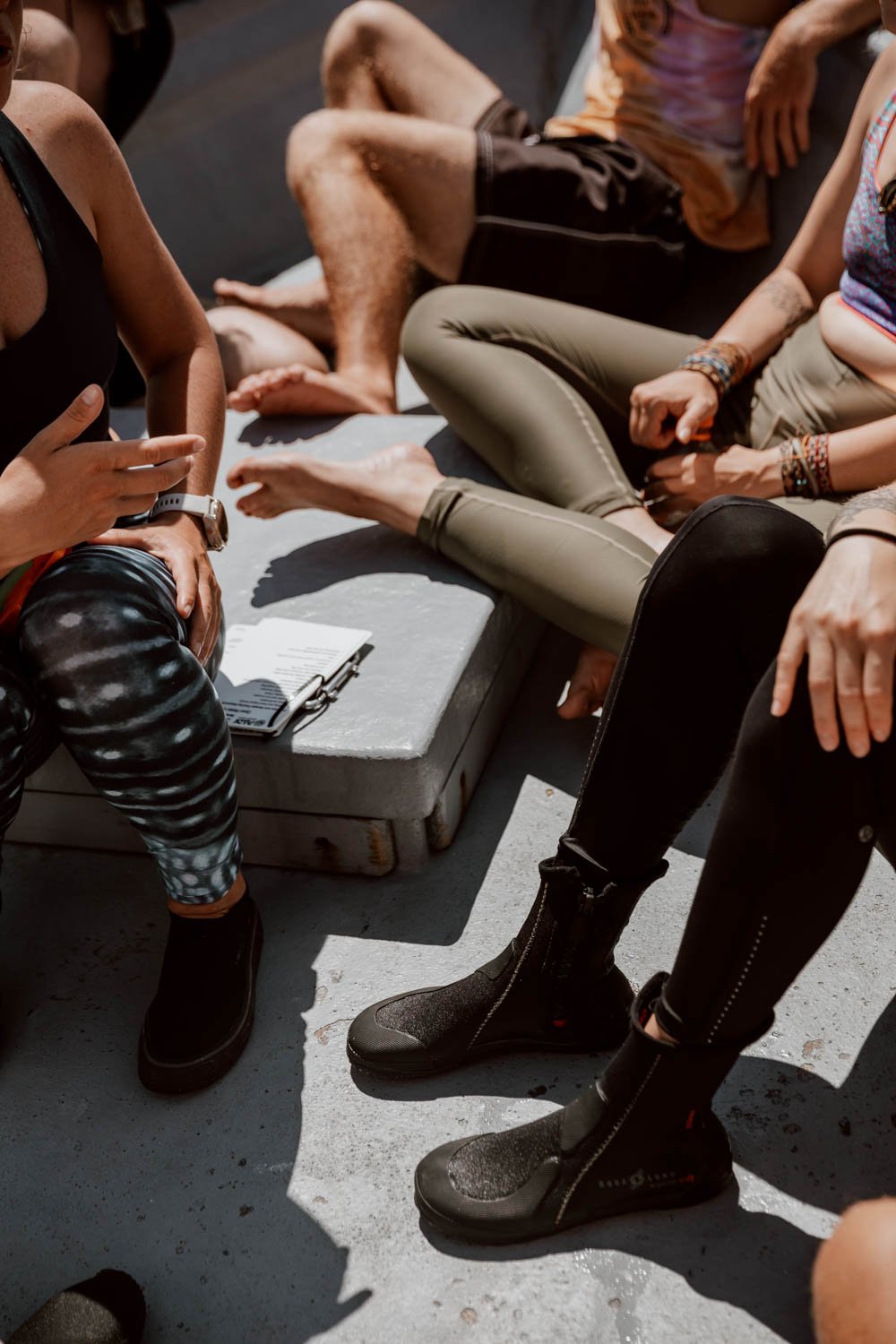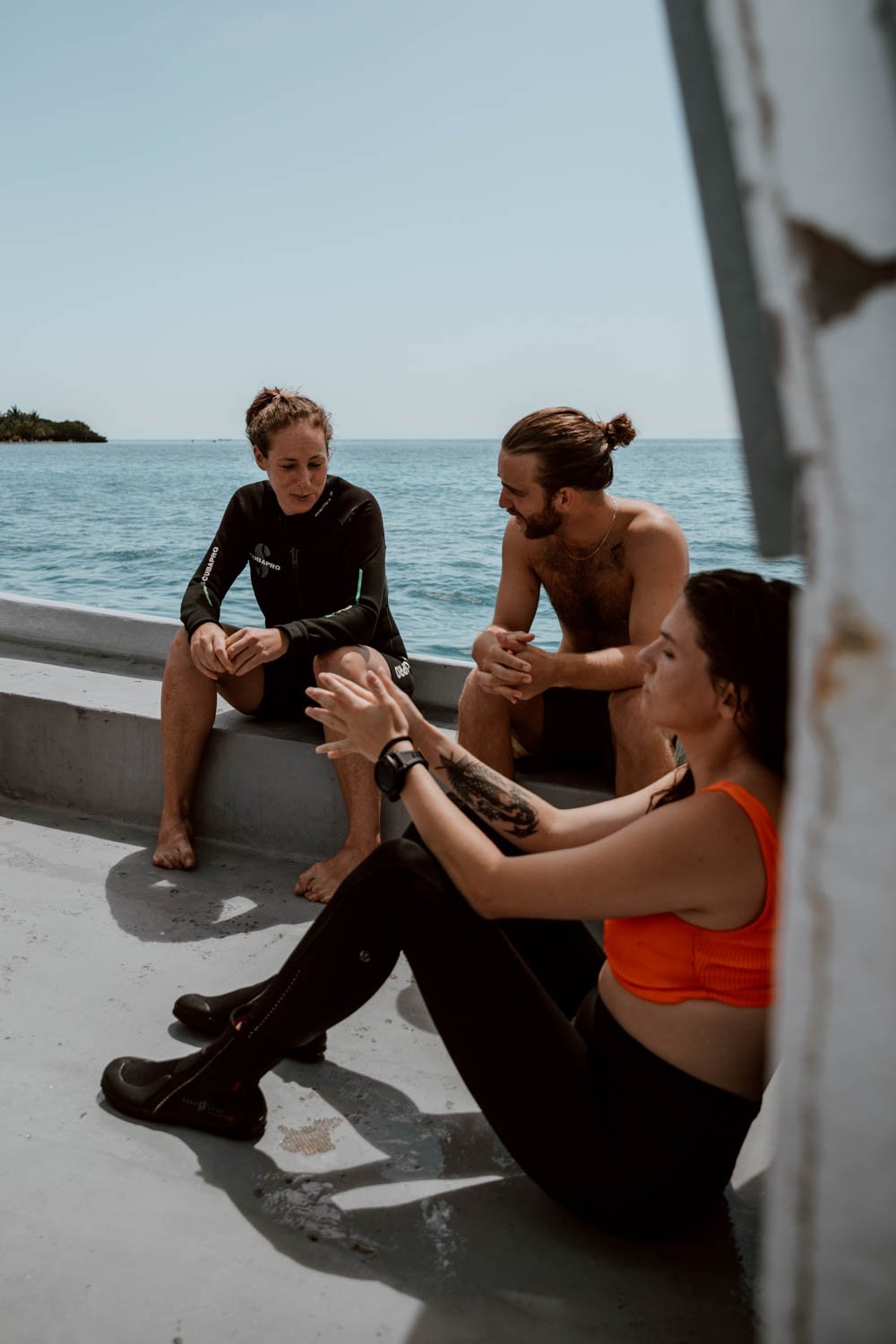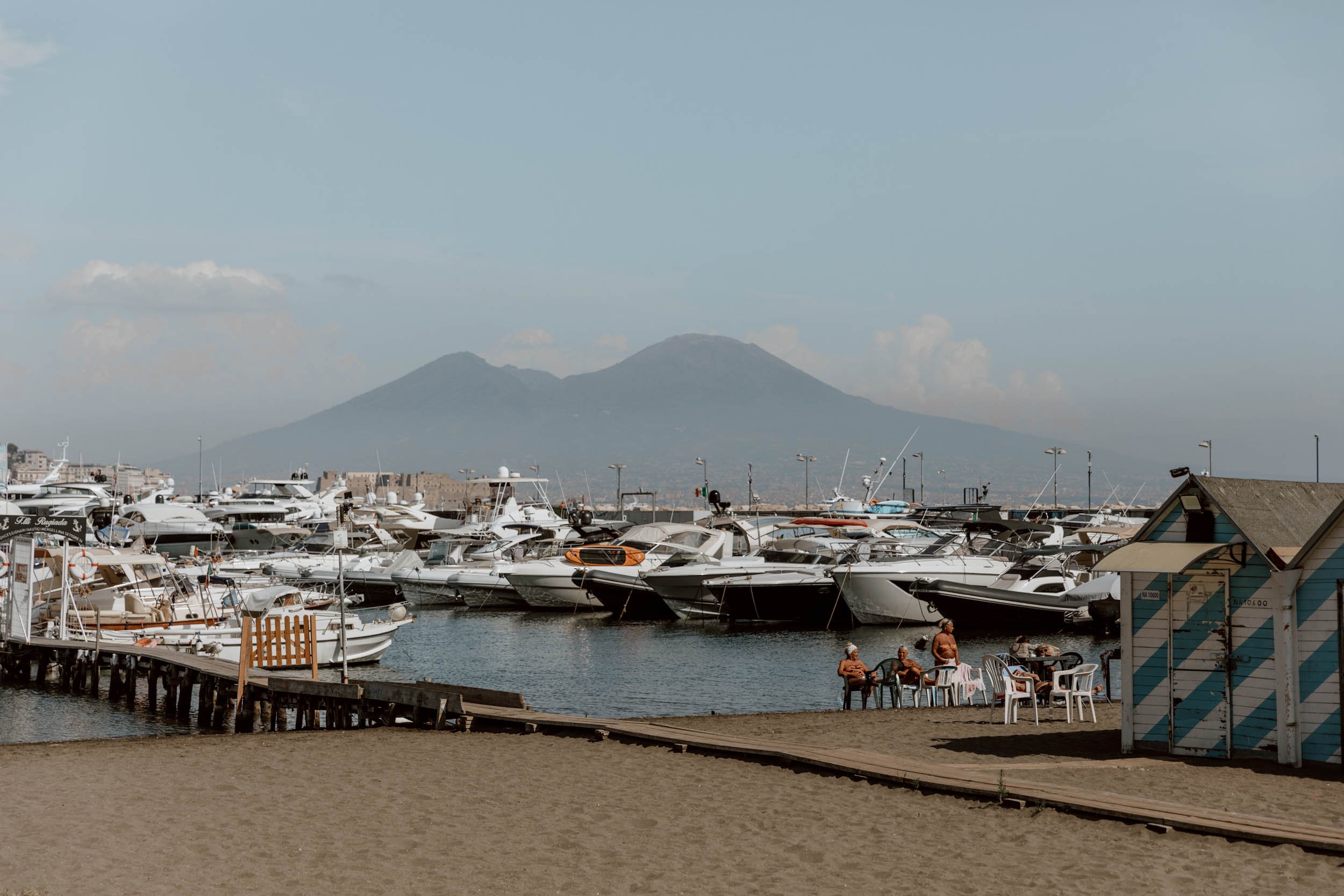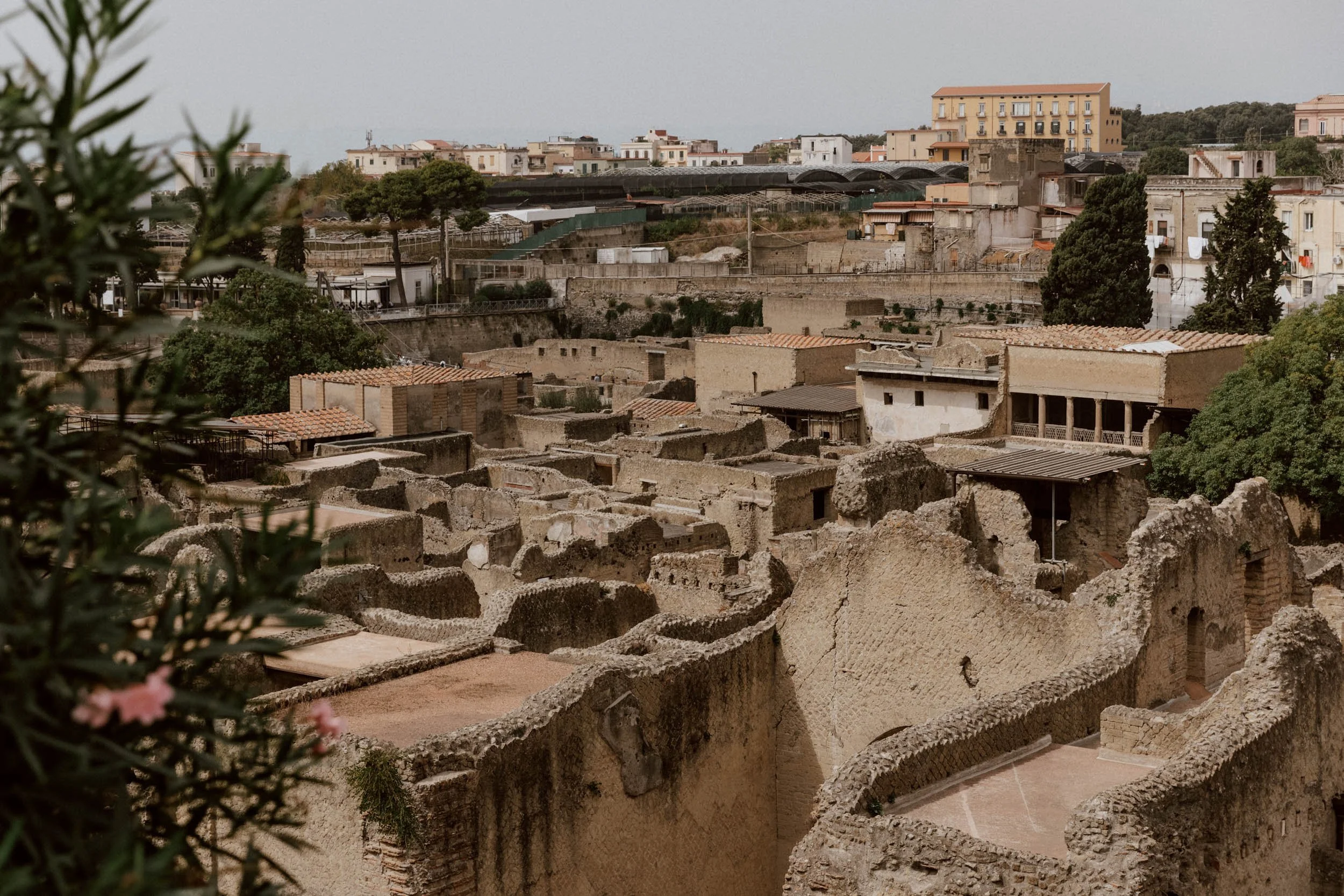Planning your next dive trip or thinking about learning to dive in Utila? With world-class sites, a great Caribbean travel vibe, and lots of budget-friendly dive schools and accommodation options, the small Honduran island with a big reputation is a wonderful choice.
In this post, we've shared everything you need to know about diving in Utila - one of the cheapest places on the planet to begin or continue your scuba diving education!
You only learn to dive once in your life, so you may as well do it in paradise.
This was our reasoning when we decided to change our plans at the last minute, and make a beeline to the little Caribbean island off the east coast of Honduras. This particular two-month Central America trip was meant to end with a return to El Salvador to indulge in pupusas and travel for two weeks in a country we both developed a soft spot for back on our big two-year trip through Latin America.
The fates however had other plans in store.
The seeds were planted over beers with a couple of Canadians in San Juan Del Sur. They, like seemingly half their country, had decided to decamp to the south coast of Nicaragua in order to escape the winter and take advantage of 'home working' (i.e. pretending to their colleagues they were still at home when they were actually heading out surfing that day). They turned out to be big-time scuba divers and one of them went to the Bay Islands of Honduras every year just to do that.
A couple of weeks later in Granada, we randomly bumped into our very talented friend Clé (@alivelikethewind) and a few people he was travelling with. Over lunch, we learned of their shared love of the ocean, and of diving deep beneath the surface of cenotes. We’d been to many of the same places over the years, and several of the world’s best diving destinations, but a combination of fear (Emily) and laziness (Andrew) meant that we’d never actually learnt to scuba dive ourselves.
Knowing that we were soon heading north from Nicaragua, we had a late-night heart-to-heart.
Maybe now, with the cheapest place in the world to get our PADI so temptingly within reach, was the time to learn to dive in Utila.
We asked our Instagram followers to help us decide, and the answer was resounding - dive. Indeed, the number of messages from people saying that Utila was their favourite place to in the world to dip below the surface, meant it would be foolish not to change our plans.
That decision, necessitating two days and two nights of travel back on ourselves and out of our way and a tremendously convoluted route to make our UK flights, was the best one we made on the whole trip.
We arrived on the island in a rainstorm, clueless and apprehensive about the deep blue and breathing under water: we departed two weeks later as Advanced Open Water divers with fantastic travel memories, excellent tans, salty hair and beaming smiles, committed to making diving a part of some (but not all) of our future travels.
And, as a final thank you from the fates for heeding their signals, we unexpectedly got to swim with a passing pod oftwenty wild dolphins on our final day of diving; it was a day that neither of us will forget.
In this short guide, we wanted to share the practical insights and information you need to decide whether to go diving in Utila or planning ahead if you already know you're heading there whilst travelling in Central America. We discuss the realities and costs of learning to dive and getting your PADI certification here, the overall sort of experience you can expect on the island (in and out of the water), as well as tips on the 80+ dive sites, the best time of year to visit, whale shark potential and how to chose your dive shop or school.
As we've only learned to dive recently, we won't pretend to the experienced divers reading this post and researching their next dive trip that we have lots to compare it too! However, much of this post and our other guides will still be very relevant to your planning / decision, and there's also a dedicated section on two things you should do differently in Utila if you're arriving here with lots of diving experience or expertise.
Let’s go.
our utila travel series
+ 13 Wonderful Things To Do in Utila
+ The Best Places To Stay in Utila
+ Little Things To Know Before You Visit Utila
+ A Directory of Utila Dive Centres
Utila diving essentials
// A world-class diving destination situated on the Mesoamerican Great Barrier Reef - the second largest in the world.
// 10 PADI dive shops on the island, 2 SSI-affiliated shops.
// PADI Open Water courses start at $220 and last four days.
// Excellent reputation for PADI career development, specialist courses, and adventure dives.
// Potential to see sharks, dolphins, turtles, stingrays, all manner of tropical fish, plus wrecks and night dives.
// Fantastic laid-back social vibes and Caribbean Island setting.
Utila Is The Cheapest Place in The World To Learn & Train
All backpackers on the Central America circuit know this, and it's a big reason why Utila has become such a fixture on itineraries.
If you plan on learning to dive here, you'll start with the three to four day PADI Open Water course; a few dive shops are partnered with a rival organisation called Scuba Schools International (SSI), but for ease, we'll just refer to PADI in this post.
In the US and Canada, the cheapest PADI Open Water course is $500-600 USD. In the UK it's $700, whilst in Spain, France and other European countries the prices range from $500 to $700. These include your equipment, but not accommodation or fun dives.
In Utila, prices in 2022 for the Open Water course start at $225 at the cheapest dive centre and top out at around $325. These prices also include basic accommodation for 4-5 nights with your dive school, all your equipment, plus two free fun dives once you've qualified.
Learning to dive in the Caribbean Sea, rather than a swimming pool, also has its benefits and, to give further sense of the value, that price is less than we paid per person for an overnight tour in Costa Rica’s remote Corcovado National Park.
The lower relative costs also carry through to adventure dives and advanced or specialist courses, with Utila also being one of the cheapest places to continue your PADI career development, and qualify as a divemaster or dive instructor (and seemingly half the island is populated by people doing just that). Package discounts are also available to make everything even cheap too.
Travel Tip | You can pay for your courses in advance online or in cash with US dollars or Honduran Lempiras (or a combination of those two currencies). There are only two ATMs on the island, and most businesses charge 5-6% on card payments, so it’s not a bad idea to bring a cash stash with you.
It's Also A Highly Respected Diving Destination
Cheap is not however synonymous with safety, quality, or enjoyability.
With diving in particular, you also need confidence in your instructor’s knowledge, the school's equipment, and the competence of those around you in the water.
Several diving instructors we spoke to in Utila get frustrated at the 'cheap' reputation being foremost in everyone's mind because, for them, it's also a place where the diving and diving education is world-class. Of course, the 'cheapest place in the world to dive' tag is what draws a good chunk of travellers there in the first place, but those who have lived and dived here for a long time always emphasise that, although the cost is low, the quality of diving and diver is high.
Our dive instructor at Underwater Vision, for example, noted how most divers who arrive with an Open Water certification from Koh Tao in Thailand (another very cheap, very popular place to learn) lack several essential good habits which she has to retrain them on so they're at the same level as others in the group who started out in Utila.
Of course, not all dive schools, equipment, and instructors are at the same standard on the island, but generally amongst divers (including those experienced followers who got in touch with us) Utila is viewed as a kick-ass, safe place to do it.
With their placement in the Caribbean along the Mesoamerican Great Barrier Reef - the second largest in the world after Australia - Utila and the rest of the rest of the Bay Islands also have natural geographical advantages which make it a superb place head out on and into the water. There’s excellent visibility and pleasant year-round temperatures, the usually calm waters are around 25-27 degrees so you don’t need a terribly thick wetsuit (4mm will do), and there’s a diversity of dive sites to keep things interesting.
We saw a turtle for five minutes on our first ever dive, as well as a bunch of stingrays, massive crabs and lobsters, and a nurse shark in our first week, then graduated to a shipwreck and a night dive in bioluminscense on our second week (one of the craziest experiences).
As you're already on island in the middle of the Caribbean Sea, you also don't have to travel very far on the boat from your dive shop to most of the 80+ dive sites! However, going that extra distance to the north side of the island is always worth it if you get opportunity.
We think we actually spoiled ourselves by learning here!
Travel Tip | All equipment is provided by dive shops, but there are two dive equipment shops in the island if you want to purchase anything.
When Can You Dive in Utila? What’s The Best Time to Visit?
Utila is generally considered a year-round diving destination, with March to May the best months for optimal weather and diving conditions.
High season is December to February, low season is around September to early December.
Ironically, the tourism high season in Central America from mid-December to February coincides with the tailend of rainy season on the Caribbean side (beginning around October/November). The Canadian chap in Nicaragua was the first to warn us of this, and it was backed up by others, as well as the first three days of our stay at the end of February being a total washout.
We then had fantastic blue skies, sun, excellent visibility and temperatures up to 30° for the other eleven days!
This doesn’t mean you should avoid the island in those rainy season months, but be aware that the chance of showers and inclement weather is higher. Dives remain possible when there’s rain, but visibility and overall enjoyment can be affected.
Hurricane season (June to September) is not as significant an issue for Utila or Roatan as others in the Caribbean, but there is an increased likelihood for stormy weather in September to October.
For reasons we explain further in '17 Things To Know Before You Visit Utila', we recommend avoiding the Semana Santa / Easter holiday period from late March or early April.
If you're a diver looking to increase your slim chances of spotting a whale shark, the best periods are considered March to May and August to September.
Morning is generally the best time of day to head out for a dive, but we also enjoyed our afternoon dives.
How Long Do You Need To Get Your PADI & Is It Difficult?
For those of you looking to learn how to dive in Utila from scratch, the course is split in three parts - knowledge development, confined water learning and open water dives - and the schedule typically goes like this:
· Day One | Classroom-based knowledge development.
· Day Two | A written test, then getting to know the equipment, a swimming test (to ensure you won’t sink when out in the water), and learning basic diving skills in the shallow seawater directly in front of your school.
· Day Three | Heading out on the boat to do two dives to a max. depth of12 metres where your instructor teaches and assesses specific skills
· Day Four | Another two dives, this time going down to 18 metres, with a final exam in the classroom.
Some schools may give you the option of e-learning instead of the classroom bit, which can shave off a day, or may have a slightly different timetable to the above. As far as we're aware, all classes are in English though instructors often won't be native speakers (most dive instructors on the island are European or North American, though there are a few Honduran dive instructors here too!). All necessary equipment is provided.
Class sizes vary by school and the season, but are in the range of 3-10 students, with one lead instructor and support from 1-3 dive masters or dive instructors in training. This means the student:teacher ratio can range from 1:2 or 1:5.
However small or big your class, do not hesitate to ask questions or clarify anything if you feel apprehensive, uncertain, or unsafe in the water.
It’s a steep learning curve on day one and two, but by day three and four you'll have got to grips with many of the basics as well as the good habits and techniques you need as a diver. It’s important to take the knowledge development stage seriously and pay the necessary attention.
The coolest part is that by day three, you're actually already out diving as part of the learning process!
So, you need to set aside four full days for the Open Water qualification, but note that there isn't always an Open Water course starting each day of the week at each school.
Also, you then need to factor in time to do a combination of 1. get drunk 2. sing karaoke 3. rest up 4. deal with a hangover from Tequila Tuesday and 5. do your 2 free fun dives (not necessarily in that order).
The four days of learning aren't intense and don’t last the whole day, but take up most of your time and involve early-ish starts, whilst your body also has adjust to the sensations and effects of diving. For some people this just means having a bigger appetite, water in the ears, or sleeping a lot, but some can have unexpected or more unfavourable reactions.
Therefore, you won't actually be doing much else on Utila except eating, chilling, and sleeping during those four days, with early nights the norm.
Further, as we explain in this post, there's a very very good chance that you'll decide to stick around on Utila longer than you think. This may just be to enjoy the island and the social life, it may be for an Advanced Open Water course, or it may just be because you don't feel like heading back to the real world yet.
For us, it was all three.
Therefore, for learners, we recommend giving yourself at least five nights here, but a week would be better to make the most of it all.
The Accommodation Is Free, But Basic And Shared
Every dive school has accommodation either on site or elsewhere in town, and this is included in the cost of your Open Water course (4-5 free nights) and Advanced Open Water course (3-4 free nights). Most travellers stay at their free dive school accommodation, and there are only a handful of non-dive guesthouses, hotels, and hostels situated in and around town (more on those later).
Dive schools also usually give a discount on accommodation to students who continue to stay there after their course has finished (something that happens a lot).
However, the quality and quantity of the dive school accommodation varies dramatically.
The standard offering across the schools is a dorm bed in a basic room of four people, but some sleep 8+. Everyone you're sharing with will usually be other learner divers or dive masters in training at the school, so it's a great way to meet people. It’s a fan rather than air-con, the rooms can be quite small, and few places have lockers.
As a couple on the wrong side of 30 though, we wanted to have a private room. It didn't have to be fancy, but just ours. Several schools do allow you to book out the whole dorm instead of sharing for no extra cost, but this totally depends on the school and availability (i.e. smaller schools are reluctant as they lose two potential beds for other learners). A few schools also provide a couple's package with a private room as standard, and that’s something we’d like to see on offer more in Utila.
Therefore, for couples or solo travellers who do not want to share or stay in a basic dorm (shared or private), this will have an impact on your choice of school and the overall cost of the Utila diving experience. Private, more luxurious rooms at the dive schools are available but limited in supply, and cost a fair bit more than most may expect given the cheapness of the courses.
In our experience, you're looking at $40-70 USD per night with your discount and demand can outstrip supply.
When we ran the numbers, that made learning to dive in Utila go from really cheap to way more than we budgeted, so we were delighted that Underwater Vision sorted us out with our own dorm for our Open Water and Advanced course (we subsequently treated ourselves and moved to one of their really nice privates for our final week).
Experienced divers who have booked dive packages with a shop are also usually entitled to discounts on the accommodation, but we recommend taking advantage of the flexibility to choose a dive centre which meets your needs on the diving side and separately finding accommodation suited to your travel style and budget. You may not want to be staying somewhere with 40+ learners and a bar underneath, prefer your own place, or want to dive with the small-group, higher-end shops but stay in more social, cheap, or fun environs.
Or just want to stay in this two-storey treehouse!
The only issue is that a lot of accommodation stock on the island is linked to the dive schools (we’d guess around 60-70%), so we recommend sorting this all out and reserving before you arrive on the island so you don’t end up in the dorm you don’t want!
Find our picks of the best accommodation options in this post - Where To Stay In Utila.
Sidenote | Roatan, the larger neighbouring island is also a popular diving destination with a fantastic reputation. Speak to anyone on the road in Central America, and the common view is that Utila is for backpackers and Roatan is for wealthier tourists and divers looking for fancier resorts and hotels. We had initially planned to spend a week on each in order to help travellers compare, but were enjoying Utila so much that we decided to simply stick around rather than take the ferry between them. Though there are really nice rooms and small-scale places to stay on Utila, those looking for something larger, fancier, and more luxurious are probably best in Roatan.
How To Choose + Book Your Utila Dive Centre
There are about a dozen dive schools and shops on Utila, with almost all of them situated along the single dusty strip of road in town which runs parallel to the sea and close to where the ferry docks.
You can either reserve your course online ahead of time at a specific one, or turn up and walk around them all in the space of a couple of hours to find a good fit or a better deal.
There are pros and cons to each.
When you disembark the ferry from La Ceiba or Roatan, there's always a few people on the dock on behalf of schools offering discounts or deals to walk-ins. Our original plan was that we should just show up, find a room for the night, and then take our time choosing from all the options.
This was almost a big mistake.
What we didn't appreciate until we turned up though was that tourism had picked back up on the island in big way at the beginning of 2022 and our private room insistence would automatically exclude several dive schools on our research and follower recommendation shortlist due to no availability.
If you're a solo traveller that's time rich, money poor, flexible on when your course starts, happy to stay in a free dorm bed, and not very concerned about class sizes or certain aspects of the diving / learning experience, then it's really not a bad idea to simply rock up and take your chances.
If you’re a group of 3+ people travelling together, you should also get in touch ahead of time or focus on the larger schools on arrival.
If you have a specific or limited window of availability to stay on Utila, have your heart set on one or two specific dive schools, or are a couple looking to stay in a private room or exclusive dorm, then we 100% recommend booking your place in advance.
Thankfully, Underwater Vision was on our shortlist and were able to sort us out, and we were really happy that we stayed and learned to dive with them over the two weeks (the wifi needs to be a million times better though).
We personally visited almost every dive school in Utila, and we've provided a quick directory + overview of each in this post (published soon!) to save you a lot of time and find the best one for your travel style. There are schools which we think are a better set up for those learning to dive, rather than those who are serious, experienced, or older divers coming to optimise their days on and under the water and go to certain dive sites.
Read it here | A Directory of Utila Dive Centres (published soon)
Hydration, Illness, Insurance, And Diving Safety
PADI guidelines advise that divers should not ascend to a high altitude within 12 hours of completing a single dive or 18 hours after doing multiple dives
It’s actually not a bad idea to read this list of things not to do after diving, just in case you need to shift about what you’ve got planned next in Central America
PRE-EXISTING MEDICAL ISSUES OR ILLNESS
Diving with a cold or blocked sinuses is dangerous and strongly advised against, therefore if you’re currently bunged up or just recovering, give yourself a few days before starting your course.
You will sign a bunch of waivers before being permitted to start any course, and we recommend checking out this medical form PDF before you book or finalise plans if you are concerned about a pre-existing medical conditions affecting your ability to scuba dive.
DON’T DRINK + DIVE
Another reason Utila is such a popular diving destination is because of the great social life on the island - we explain more about this in 13 Wonderful Things To Do in Utila. However, it’s important as a learner to prioritise diving over drinking alcohol during your course.
You can have a beer or two sure, but keep a lid on the late nights and booze whilst you’re learning, especially if you’ve got early morning dives. It’s not just for your own safety and enjoyment, but also that of your diving class - if you get into shit under the water, the whole group’s affected.
Therefore, have respect for them and your instructor - there’s plenty time afterward to take advantage of Tequila Tuesday!
Stay Hydrated
Alright, so do drink and dive!
Dehydration is a major contributor to decompression sickness (DCS), but the chances of dehydration also increase when doing lots of diving.
Our instructor thankfully told us right at the beginning that purified water sold on Utila in bottles or refills (tap water isn’t drinkable) lacks many of the minerals our bodies require to stay well-hydrated. This means a common issue for newcomers on Utila is that, no matter how much of the water they’re glugging down, they still feel the thirst, which is why you’ll see lots of people chugging on Gatorades or chomping on bananas after dives in order to replenish their electrolytes.
From personal experience, we can also confirm that thirst and hydration takes a while to balance out when you’re new to diving.
We’re both really conscious of our single-plastic consumption and so buying lots of bottles of Gatorade or cheaper alternatives in the shops didn’t appeal. Thankfully, we always have a stock of cheap powder rehydration sachets in our travel medical pack (for post-diahorrea or intense hikes), and they did the business wen added to our water refills. Highly recommend packing a load for Utila and Central America generally.
Fresh coconut water, especially when it’s from Mario, also helps!
Diving Tip | Even though it’s a sign that your hydration levels are keeping up, don’t piss in your wetsuit!
Check Your Travel Insurance
You should not travel in Central America without travel insurance, and you shouldn’t contemplate diving without checking your travel insurance coverage.
Standard policies should cover recreational / conventional diving to 18 metres and learning under the supervision of a qualified instructutor, which will be sufficient for your Open Water and fun dives, but we recommend double-checking your own policy coverage and conditions.
If you stick around to do you Advanced Open Water and other courses, which involves dives to 30 metres, that depth may not be covered in a standard policy meaning you need to contact your insurer, add it on, or buy a standalone policy.
The basic medical care on the island is adequate for minor issues, but serious diving medical emergencies will likely involve airlifts to the mainland and/or high costs, and that’s what the insurance is for.
At time of writing, there’s only one hyperbaric chamber on Utila, owned and situated at Bay Islands College of Diving.
We’ve bought our insurance with TrueTraveller for the last five years, and their Adventure policy includes dives up to 30 metres as standard, as well as a bunch of other popular activities in Central America.
Read | Our Guide to Picking the Best Travel Insurance
Don’t Fly Too Soon!
As a general rule it is also recommended to wait 24 hours before flying after diving, and most insurance policies actually include this timeframe as a condition of coverage.
Know The Utila Upsell
Although you might be tempted to stick around and continue your diving education anyway, the ‘Utila Upsell’ is also a thing. Dive instructors tend to be paid on student sign-ups rather than hours, so it makes sense that they’d want you to stick around too!
We had no plans on doing our Advanced Course, with the rationale being the Open Water would suffice this year and then we’d go dive a little more in Roatan. However, our Instructor made a good point that 1. she knew us as divers now, so the course would be more bespoke and 2. the more we learned now, the better divers we’d be for future trips (and able to go down to 30 metres straight away) 3. it was going to be the cheapest place to do it.
Also, doing a wreck dive and a night dive sounded damn cool!
As we were both really happy to stick around on Utila, enjoyed diving a lot, and liked the school and instructor, our arms didn’t take that much twisting. However, do remember that the decision is entirely up to you about sticking around, and you can always change to another dive school if you’re not happy with the experience, atmosphere, equipment, accommodation or professionalism at the place you got your Open Water cert.
Most schools also give 5-10% discounts on subsequent course sign ups, but rivals will probably give you the discount too if you explain the circumstances.




